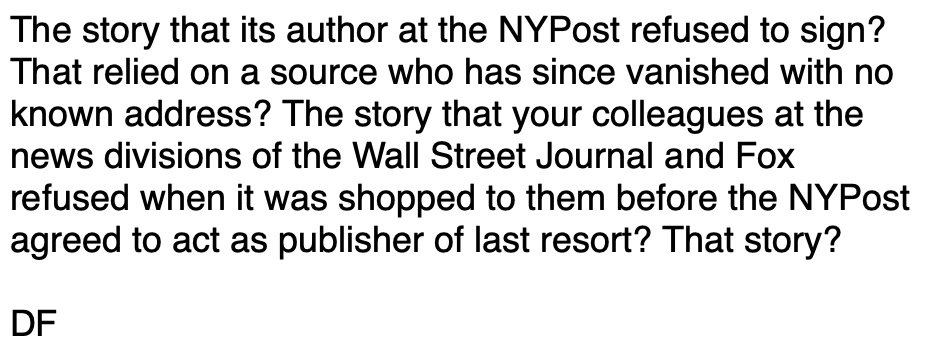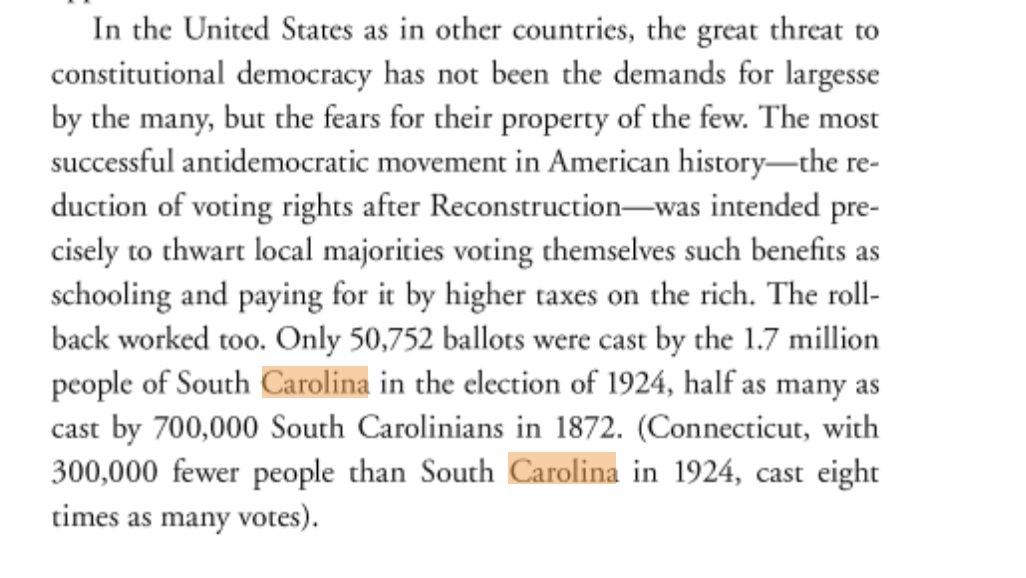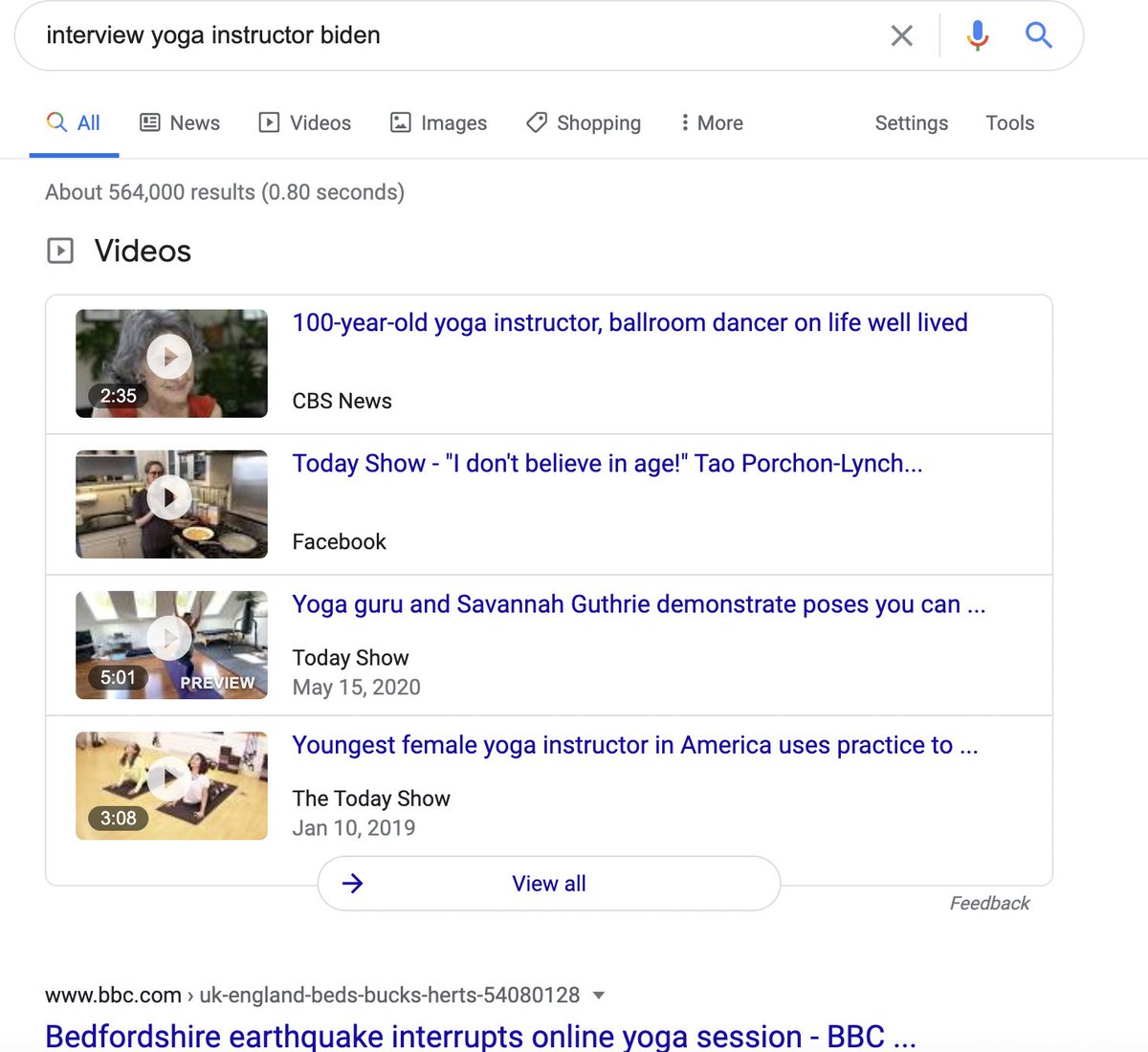You're hearing a lot of talk about "irregularities" in the election of 1876 that led to a "disputed" outcome. What is being referred to in this hazy terms?
The killings were not spontaneous outbursts. They were part of planned campaign of anti-black voter suppression.
https://t.co/92OLBuQij3

More from David Frum
I got overnight via email a query from @briansflood at Fox News, the principal part of which I reproduce below. I answered by email too. I'll append that reply in the next threaded tweet:

My reply:

Hunter Biden's dubious business activities have been reported for years. Here for example is @TheAtlantic in September 2019, year *before* @nypost https://t.co/qZBTpyuysM

That emails attributed to Hunter Biden were circulating was also known well before the NYPost story in October. Here's TIME magazine https://t.co/JvpEKdG0U4

What @NYPost added to the work earlier done by others was a new *origin* story for the materials that circulated in Ukraine in 2019. When other media organizations attempted to corroborate that story, hijinx ensued. https://t.co/ZJGZWq7etU @thedailybeast account


My reply:

Hunter Biden's dubious business activities have been reported for years. Here for example is @TheAtlantic in September 2019, year *before* @nypost https://t.co/qZBTpyuysM

That emails attributed to Hunter Biden were circulating was also known well before the NYPost story in October. Here's TIME magazine https://t.co/JvpEKdG0U4

What @NYPost added to the work earlier done by others was a new *origin* story for the materials that circulated in Ukraine in 2019. When other media organizations attempted to corroborate that story, hijinx ensued. https://t.co/ZJGZWq7etU @thedailybeast account

More from Politics
We’ve been getting calls and outreach from Queens residents all day about this.
The community’s response? Outrage.
Amazon is a billion-dollar company. The idea that it will receive hundreds of millions of dollars in tax breaks at a time when our subway is crumbling and our communities need MORE investment, not less, is extremely concerning to residents here.
When we talk about bringing jobs to the community, we need to dig deep:
- Has the company promised to hire in the existing community?
- What’s the quality of jobs + how many are promised? Are these jobs low-wage or high wage? Are there benefits? Can people collectively bargain?
Displacement is not community development. Investing in luxury condos is not the same thing as investing in people and families.
Shuffling working class people out of a community does not improve their quality of life.
We need to focus on good healthcare, living wages, affordable rent. Corporations that offer none of those things should be met w/ skepticism.
It’s possible to establish economic partnerships w/ real opportunities for working families, instead of a race-to-the-bottom competition.
The community’s response? Outrage.
Amazon will divide its second headquarters evenly between New York's Long Island City and Arlington County's Crystal City neighborhoods. Other cities may also receive major sites. https://t.co/c1lKmeQinX
— The Wall Street Journal (@WSJ) November 13, 2018
Amazon is a billion-dollar company. The idea that it will receive hundreds of millions of dollars in tax breaks at a time when our subway is crumbling and our communities need MORE investment, not less, is extremely concerning to residents here.
When we talk about bringing jobs to the community, we need to dig deep:
- Has the company promised to hire in the existing community?
- What’s the quality of jobs + how many are promised? Are these jobs low-wage or high wage? Are there benefits? Can people collectively bargain?
Displacement is not community development. Investing in luxury condos is not the same thing as investing in people and families.
Shuffling working class people out of a community does not improve their quality of life.
We need to focus on good healthcare, living wages, affordable rent. Corporations that offer none of those things should be met w/ skepticism.
It’s possible to establish economic partnerships w/ real opportunities for working families, instead of a race-to-the-bottom competition.

































